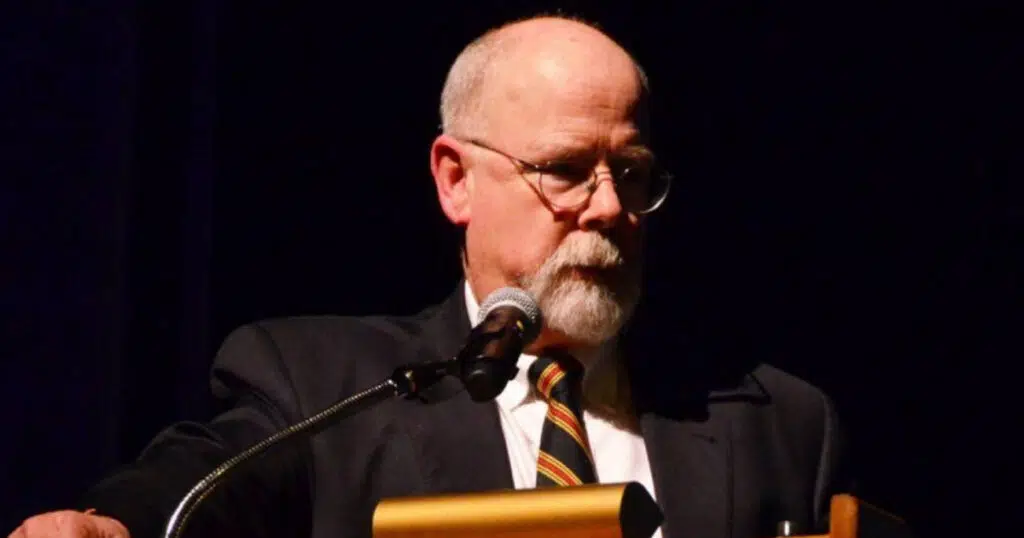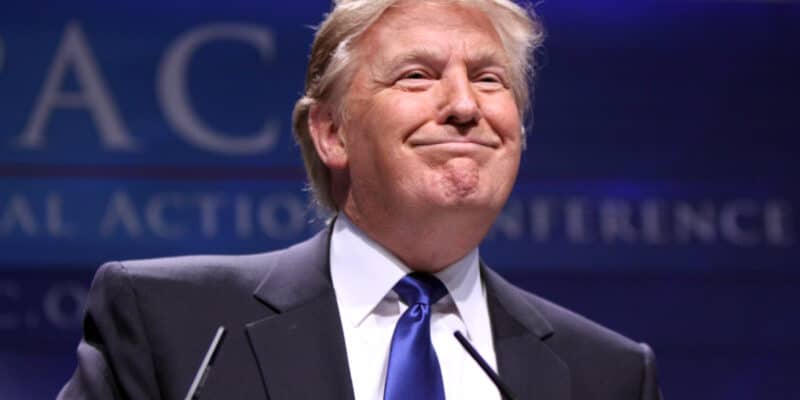
Durham Report Finds FBI Failures, No Russian Collusion With Trump
The report from Special Counsel John Durham found that the FBI raced – in spite of an absence of evidence – to investigate allegations Donald Trump was in cahoots with Russia. By contrast, when the bureau found evidence that a Russian who was working at the Brookings Institution appeared to be soliciting classified information from his colleagues, the FBI’s investigation was not just lax but incompetent.
The Russian in question was Igor Danchenko, who would go to work for Christopher Steele. As Steele’s “primary sub-source,” Danchenko would later provide most of the preposterous claims in the notorious “dossier.”
Durham prosecuted Danchenko last year, charging him with making false statements to the FBI, but the special counsel failed to secure a conviction. Even so, Durham did not back down in his report from discussing at length Danchenko’s involvement in the collusion story and the FBI’s investigation into evidence Danchenko was a Russian agent.
In 2008 Danchenko was an analyst at Brookings, and he used his position to solicit classified information. While “employed by the Brookings Institution,” Durham reported, Danchenko “engaged two fellow employees about whether one of the employees might be willing or able in the future to provide classified information in exchange for money.” It’s worth pointing out that this – offering to buy state secrets, not tales of peeing prostitutes – is what actual collusion with Russia looks like.
In late 2008, Barack Obama had just been elected president and was assembling the personnel for his administration. Danchenko approached a fellow Brookings employee, someone who appeared likely to be offered a position in Obama’s government, and said “he had access to people who were willing to pay for classified information.”
Alarmed, the employee went to a government security official who in turn alerted the FBI. The bureau did some asking around and found “several former colleagues of Danchenko who raised concerns about Danchenko’s potential involvement with Russian Intelligence.” Nor was this just some glib offhand remark. According to the Durham report, another of Danchenko’s Brookings associates had worked as an intern at a U.S. intelligence agency. Danchenko pestered that person for classified information – “Danchenko frequently inquired about that person’s knowledge of a specific Russian military matter.”
Danchenko was such a likely target that In 2009 the FBI opened an official investigation into him.
A year’s worth of scrutiny did nothing to reduce fears that Danchenko was a Russian operative. And so in July 2010 the bureau applied for a FISA warrant to keep an eye on him.
But the FBI never did get a wire up and running on Danchenko. The bureau closed out the investigation in 2011, not because Danchenko had been cleared, but because agents lost track of him. “The FBI incorrectly concluded that Danchenko had left the country and returned to Russia,” Durham reports.
Years later, the FBI found Danchenko, and established that he had been the source of Steele’s fever dreams. But the bureau did not put the screws to the man the FBI had suspected of being a Russian agent. Instead, Hoover’s heirs signed Danchenko up as a Confidential Human Source (CHS) and paid him for information.
Durham was unable to find any “indication that the Crossfire Hurricane investigators ever attempted to resolve the prior Danchenko espionage matter before opening him as a paid CHS.” If the FBI had paid attention to its own file on Danchenko, they would have had to entertain the possibility that the information he was feeding Steele “was, in whole or in part, Russian disinformation.”
Durham suggests that if the FBI hadn’t bungled its investigation into Danchenko, the Russian might have been scooped up before he ever went to work for Christopher Steele. Absent Danchenko’s fantastical improvisations, there might not have been a dossier at all. That leads to this conclusion: If Danchenko was a Russian agent, putting him under competent surveillance might have disrupted and disarmed a Russian disinformation campaign.
The bureau’s failure to keep tabs on Danchenko is worth keeping in mind this Thursday as whistleblower Marcus Allen testifies on Capitol Hill about politicization at the FBI. The bureau has dismissed him and accused him of having “conspiratorial views.” The FBI provided no evidence to back it up.
This article was originally published by RealClearPolitics and made available via RealClearWire.



